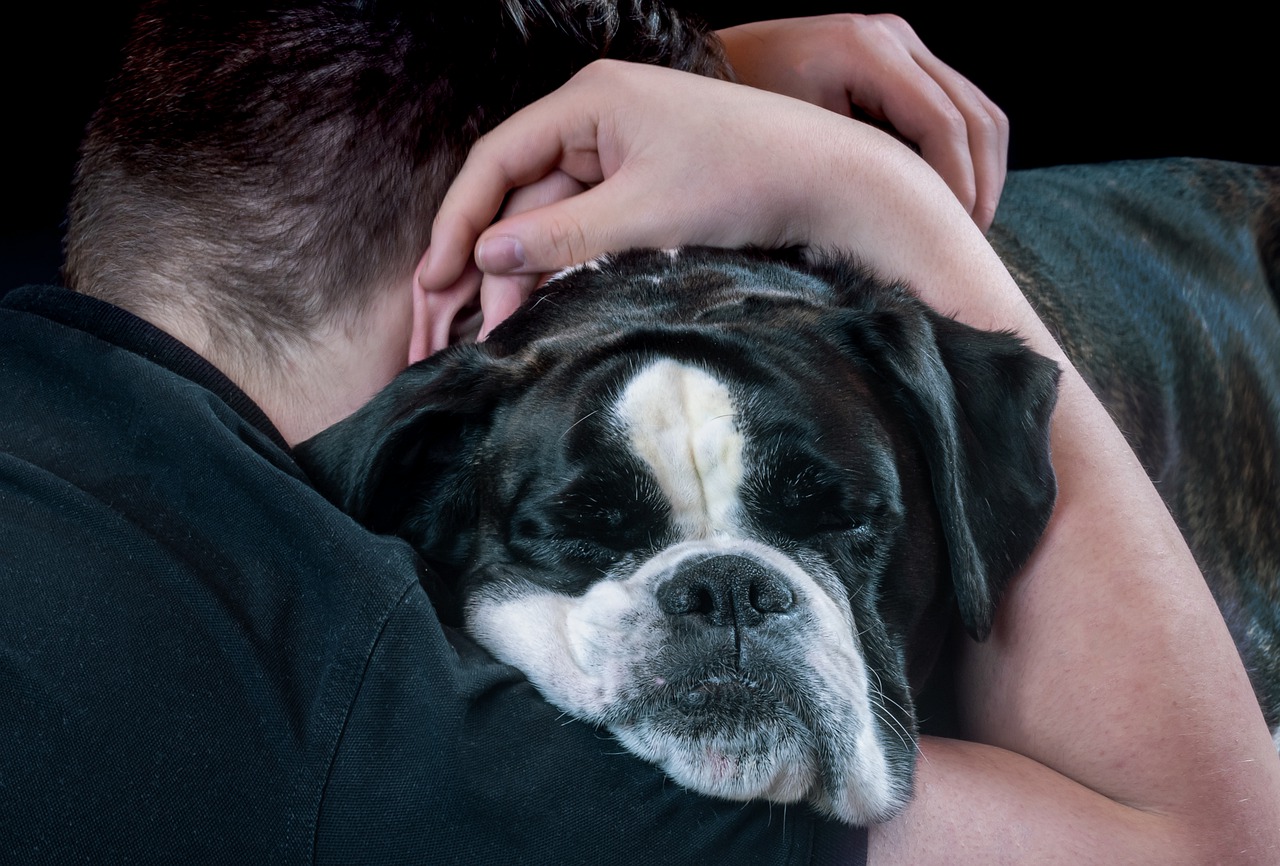Every dog owner knows that these furry friends invite you to give them a hug. The skin full of hairs dogs, their velvety softness, makes them the target of many cuddles.
But, according to one study, that might not be the best way to treat our best friends.
Here are the conclusions of a study, which states that dogs they don’t enjoy some of your affection.

(Photo: Pixabay)
Does the dog suffer the hug?
In accordance with a data analysis study conducted by Stanley Coren, a doctor of psychology from Columbia University, Canada, despite loving their owners, dogs can suffer from being hugged.
Dogs are often “humanized”, and therefore, it is assumed that hugs provide the same benefits as humans.
Currently it is known that a hug, especially in children, releases the hormone oxytocin, associated with love and bonding. But, in the case of dogs, the same is not the case.
On the contrary, hugs can increase your stress level.
Hugging can stress you out
According to Stanley Coren, Ph.D. in psychology, dogs are animals. “coursesLike horses. That is, they are biologically designed to run fast.
That means that, in times of stress, your first line of defense is not to attack or show your teeth, but to flee.
Coren argues that behavioral psychologists believe that hugging a dog, especially when it is a stranger, limits a dog from its natural course of action, by immobilizing it, and that increases its level of stress and anxiety, increasing the possibility that release a bite.
This is precisely why young children, no matter how calm a dog may be, are not recommended to try to hug a dog, because they are increasing the possibility of being bitten when doing so.
Signs of stress in dogs
Coren compiled the signs of stress and annoyance that a dog shows when being hugged and feeling uncomfortable:
- The dog turns its head to avoid eye contact.
- It shows what is commonly called a “crescent eye”, which is where the whites of the eyes can be seen.
- A common visible sign of stress or anxiety is when the dog’s ears are lowered.
- Licking a person’s face can also be symptoms of anxiety, such as yawning or lifting a paw.
To test his idea, Coren reviewed 250 stock photos – or social media uploads – of people hugging dogs. It found that 81.6% of the photos showed dogs emitting at least one sign of discomfort, stress, or anxiety.
“These data clearly show that while some dogs may like to be hugged, more than four out of five dogs find this human expression of affection unpleasant. and / or anxiety ”, concludes Coren.
Obviously, Dr. Coren does not say that we stop giving affection to our furry friends, he only recommends other ways to express your affection, such as stroking his back, a kind word, playing with him or perhaps with a treat.
Mind you, Coren admitted in an interview that his research was very casual, and that it cannot be taken as an irrefutable truth. But it is very likely that a dog only likes the hugs of his closest ones and never for long.





